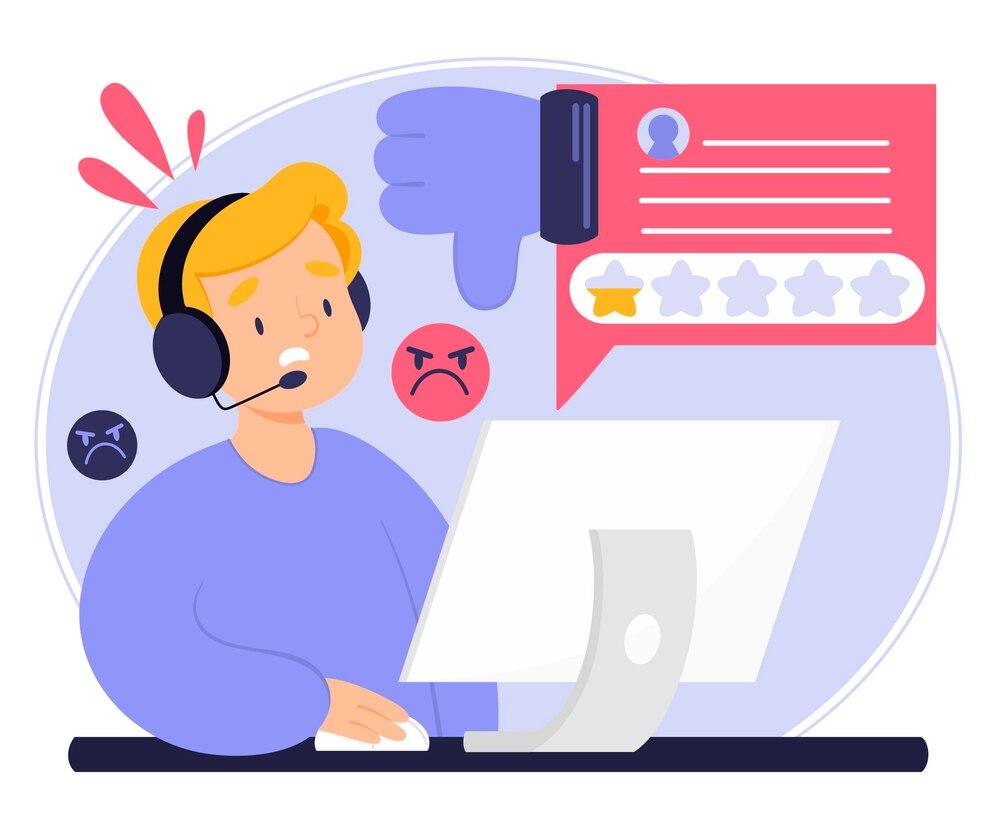In recent years, online consultations have become an integral part of our lives. We increasingly turn to "experts" for help in various fields: from legal assistance to medical consultations or financial advice. However, as the popularity of these services has grown, so has the number of scammers. Every day we encounter fake consultants ready to deceive trusting clients.
Online Consultant Fraud: How Does It Work?
Online consultations have become a convenient way to obtain necessary information and assistance. However, as in any field, there are unscrupulous practices that lead to fraud. Many scammers present themselves as professionals in their field, but in reality, they lack both knowledge and experience.
Often they create attractive websites or social media pages where they offer their services. At the first stage, they may look convincing, emphasizing extensive experience, successful cases, and positive reviews. However, it is important to remember that reviews can be fake, and real career achievements do not always match what is claimed.
Remote Service Scams: How to Spot Them?
Various forms of remote service scams are becoming increasingly popular. Clients often trust reviews and recommendations, making them vulnerable to scammers. However, you can recognize fake consultants if you know what to look for.
The first thing to check is the presence of licenses and certificates from the expert. Real professionals can always provide documents confirming their qualifications. The second important aspect is the transparency of activities. If a consultant is not ready to provide information about themselves, their clients, and methods of work, this is a reason for caution.
Scammers also often use pressure tactics to force clients to make decisions quickly. They may promise limited offers or insist on the urgency of the problem.

Fake Lawyers on the Internet: Variety of Scam Methods
Fraud in the legal field is one of the most common problems on the internet. Fake lawyers can operate using several schemes.
Some of them simply use unconventional solutions for non-existent legal problems, thus persuading victims to pay for useless services. Others may act more skillfully, offering "consultations" that include high service fees that will never be rendered.
It is important to understand that fake lawyers can easily create an illusion of legal support by using frequently asked questions and general advice. They may prepare fake documents or descriptions of legal processes that look plausible but have no legal force.
Clients who turn to fake lawyers risk not only losing money but also facing legal consequences if the scammers use illegal methods in their activities.

Financial Consultation Scams: How to Avoid Scammers' Traps
Financial scammers successfully use the internet to lure trusting clients. They attract attention with high returns and promises of quick and easy earnings. Most often, fake financial consultants offer investment services that turn out to be financial pyramids.
One of the main strategies of these scammers is to lure clients to free seminars or webinars by posing as successful traders or investors. At such events, they may make enticing promises and scare attendees with imaginary consequences of not investing. Once the client shows interest, they are offered paid courses or individual consultations, which, being empty and unjustified, lead only to financial losses.

Online Medical Advice Scams: Serious Consequences
With the growing interest in online health and medical consultations, scammers have also appeared. They may offer effective treatment methods that do not actually work and may even harm the client's health. Scammers may use various technologies, such as fake health tests or deceptive medical products.
People seeking medical advice online must be especially cautious. Trust in researching and verifying information in such matters is crucial. Before seeking online consultations, it is necessary to verify the presence of a license, education, and reviews about the specialist.
Some scammers may also manipulate the psycho-emotional state of their victims, playing on their fears and hopes to achieve financial gain. Among common scam methods are illegal treatment methods or advertisements for new miraculous drugs.
How to Distinguish a Fake Expert from a Real One?
To protect yourself from fraud, it is extremely important to be able to distinguish real experts from fake ones. Here are some recommendations to help you with this:
- Check documents.
- Look for reviews.
- Don't rush.
- Request information during the check.

Fake Coaches and Mentors: A Growing Problem
The coaching and mentoring system has become popular, but unfortunately, it has also attracted a large number of scammers. Fake coaches often promise unique trainings that actually provide no value. They may create fake portfolios with their "successes," but in reality, their methods do not yield real results.
Fake mentors can operate both in higher education institutions and in other business areas. They may offer themselves as mentors without having the necessary knowledge and experience. Therefore, before turning to a coach, it is advisable to thoroughly verify their achievements and qualifications.
Consulting Scammers: Why Is It Important to Protect Yourself?
It can be confidently stated that fraud in the consulting sector is a serious problem affecting many. This applies to both small companies and large enterprises. Scammers can influence the future of a business because their advice can lead to inefficient resource use and losses.
In this regard, it is important to know the main signs of fraud—from dishonest behavior to implausible promises. First of all, ask questions and demand explanations on all points that interest you.
Fake online consultants are a problem that needs serious attention. With the increasing number of scammers, it is becoming increasingly difficult to identify real specialists among the crowd. The right approach to the quality and diversity of information that ensures the protection of personal interests can play an important role in minimizing the risk of fraud.
